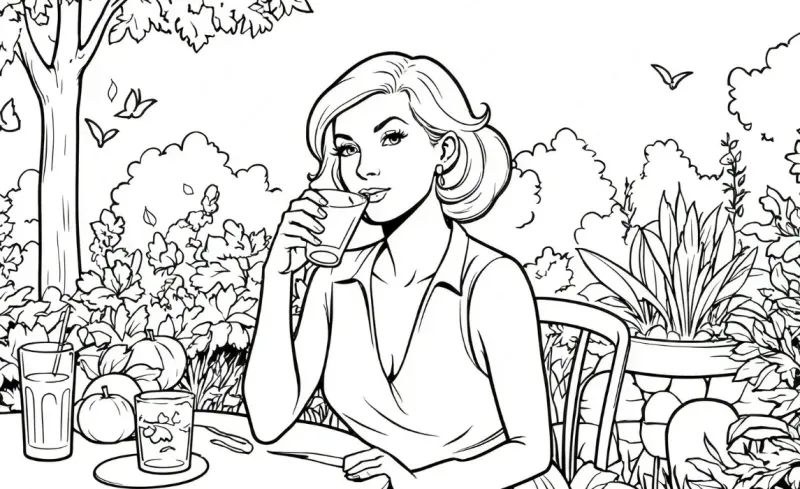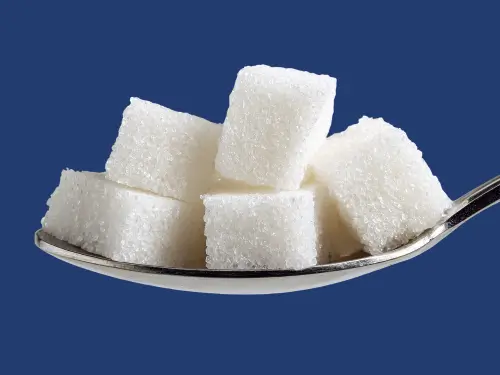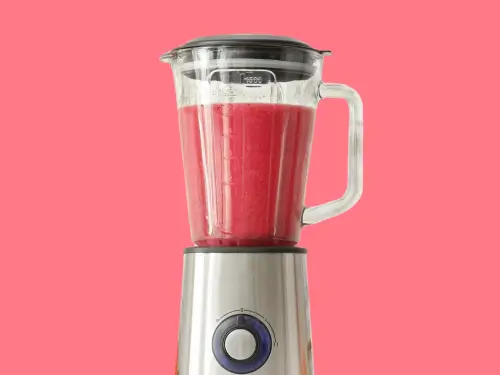When it comes to crafting cocktails, simple syrup is one of the most underrated yet indispensable ingredients. It might look like nothing more than sugar water, but it’s what gives your drink balance, smoothness, and that professional touch. Unlike granulated sugar, which clumps and sinks to the bottom of cold drinks, simple syrup dissolves instantly, creating a consistent sweetness that blends beautifully with spirits, citrus, and mixers. Whether you’re an aspiring home bartender or someone who just wants to make a better mojito at home, mastering simple syrup is a small step with a big payoff.
What Is Simple Syrup and Why Is It Important?
Simple syrup is exactly what it sounds like: a mixture of sugar and water. Its origins go back to early cocktail culture in the 19th century when bartenders needed a way to sweeten drinks quickly and evenly. Today, it remains a staple in both professional bars and home kitchens because it’s versatile, affordable, and endlessly customizable. Beyond cocktails, it’s also used in iced coffee, teas, mocktails, and even baking.
Standard Simple Syrup (1:1 ratio):
This version is made by combining equal parts sugar and water, typically 1 cup of sugar with 1 cup of water. It’s the most widely used style because of its versatility and balance. The result is a clear, light syrup that blends seamlessly into cocktails without overpowering other flavors. Standard simple syrup is ideal for drinks that need a crisp, refreshing sweetness—such as daiquiris, mojitos, whiskey sours, margaritas, and iced teas. It’s also perfect for non-alcoholic beverages like lemonade or cold brew coffee. One advantage of 1:1 syrup is that it dilutes easily, making it especially useful in cocktails that rely on citrus juice, where you want the sweetness to complement, not dominate.
Rich Simple Syrup (2:1 ratio):
Made with two parts sugar to one part water, this syrup is thicker, sweeter, and slightly more viscous. Because of the higher sugar concentration, it has a longer shelf life—often lasting up to six weeks in the fridge compared to about four for standard syrup. Its denser texture adds more weight and body to cocktails, which can subtly influence the mouthfeel of the drink. Rich syrup is often the bartender’s choice in recipes like the Old Fashioned, Sazerac, or other spirit-forward cocktails where you want to enhance sweetness without increasing liquid volume. It’s also commonly used with dark spirits like bourbon, rye, and aged rum, as the richer notes complement their depth.
Why Choosing the Right Syrup Matters:
Although both versions are technically interchangeable, the choice between standard and rich syrup can change the balance, mouthfeel, and overall impression of a drink.
- Light, citrusy cocktails (like a daiquiri or Tom Collins) benefit from the cleaner, more delicate sweetness of standard syrup.
- Spirit-heavy classics (like an Old Fashioned or Manhattan twist) often taste better with rich syrup because it rounds out the edges of the spirit while keeping dilution low.
In short, think of 1:1 syrup as your all-purpose sweetener for refreshing cocktails and non-alcoholic drinks, while 2:1 syrup is your specialized tool for bolder, spirit-driven recipes where sweetness and texture need to be more pronounced.
Read Related Article: Easy New Years Eve Drinks and Cocktails
Ring in the new year with easy New Year’s Eve drinks and cocktails. Discover festive recipes, from sparkling champagne mixes to simple crowd-pleasers, perfect for your celebration.
Read More
How to Make Simple Syrup at Home | Step-by-Step Recipe (1:1 Ratio)
Making simple syrup is one of the easiest ways to elevate your cocktails. With just sugar and water, you can create a smooth sweetener that blends seamlessly into any drink. Here’s how to do it:
Standard Simple Syrup (1:1 Ratio)
Ingredients
- 1 cup granulated sugar
- 1 cup water
Method
- Add sugar and water to a small saucepan. White sugar gives a neutral taste, while raw or demerara sugar adds caramel-like depth.
- Warm gently over medium heat, stirring until the sugar dissolves completely. The mixture should look clear—avoid boiling, as that can caramelize the sugar.
- Remove from heat and allow it to cool to room temperature.
- Pour into a clean, airtight glass jar or bottle. Label with the date made.
- Store in the refrigerator for up to 3–4 weeks. Discard if it turns cloudy, crystallizes, or develops an off smell.
Rich Simple Syrup (2:1 Ratio)
For cocktails that benefit from a heavier texture or more concentrated sweetness, try the rich version. Combine 2 cups sugar with 1 cup water, heat and dissolve as above, and let it cool before bottling. This syrup lasts longer—about 5–6 weeks refrigerated—and is often preferred in spirit-forward drinks like an Old Fashioned or Sazerac, where extra sweetness is needed without adding too much liquid.
Pro Tip: Add herbs, spices, or citrus peels to your syrup after the sugar dissolves for unique infusions. Strain before storing, and you’ll have a custom sweetener to give your cocktails a signature twist.
Read Related Article: Types of Barware Glasses
Learn about the different types of barware glasses and their uses. From martini and highball glasses to coupes and rocks, find the perfect glassware to elevate your cocktails.
Read More
Creative Variations and Infusions
One of the greatest advantages of simple syrup is its adaptability. With just a few extra ingredients, you can transform a plain syrup into something that enhances cocktails with layers of flavor, aroma, and even visual appeal. These variations not only elevate classic recipes but also allow you to experiment and create a signature style for your home bar.
Herbal Infusions
Fresh herbs bring brightness and depth that pair especially well with light, refreshing cocktails. Mint syrup is a natural choice for mojitos or juleps, providing consistent flavor without the muddiness of muddled leaves. Rosemary or thyme syrups add an earthy, aromatic twist to gin and vodka drinks, while basil syrup brings a sweet, peppery note that complements citrus-forward spritzers. Always add herbs after the sugar has dissolved, and steep for 15–30 minutes depending on strength before straining.
Spice Infusions
Spices create warmth and complexity, making them excellent for fall and winter cocktails. Cinnamon sticks, cloves, nutmeg, or star anise turn simple syrup into a cozy holiday ingredient perfect for mulled wine, hot toddies, or spiced rum cocktails. Ginger syrup adds a sharp, zesty kick that works beautifully in whiskey sours or Moscow Mules. Lightly simmer the spices with the syrup for 5–10 minutes, then strain well to avoid bitterness.
Citrus and Fruit Variations
Fruits and citrus zests lend brightness and natural sweetness to cocktails. Lemon or orange peel syrups pair beautifully with vodka or gin, enhancing citrus-forward cocktails like the Tom Collins. Berry syrups (strawberry, raspberry, or blueberry) add color and a burst of flavor that works in daiquiris, margaritas, or spritzers. Tropical fruits like pineapple or mango give a lush, exotic dimension to tiki drinks. For these, mash fruit lightly before adding to the syrup, then strain through a fine sieve or cheesecloth.
Floral Notes
Floral infusions add elegance and aroma, often transforming cocktails into something extraordinary. Lavender syrup pairs wonderfully with champagne or gin cocktails, while hibiscus syrup lends both tartness and a striking red hue, making it visually stunning in margaritas or spritzers. Chamomile syrup has a gentle, calming sweetness perfect for lighter drinks served in the evening. Infuse dried flowers after dissolving the sugar, and steep briefly—usually 10–15 minutes—to avoid overpowering the syrup.
Alternative Sweeteners
For a deeper or more nuanced sweetness, swap out white sugar for alternatives. Demerara or turbinado sugar creates a syrup with a golden color and subtle caramel undertones, perfect for bourbon or rum cocktails. Honey syrup (2 parts honey to 1 part water) introduces floral complexity and blends easily into drinks like a Gold Rush or Bee’s Knees. Agave nectar, often used in tequila and mezcal cocktails, gives a smooth, mellow sweetness that highlights earthy agave spirits without overpowering them.
Storage and Shelf Life
Once you’ve made a batch of simple syrup, storing it properly is just as important as the recipe itself. Because it contains no preservatives (unless you add them), simple syrup can spoil if not handled with care. Its shelf life also depends on the type of syrup you’ve prepared and whether it has been infused with additional flavors.
A standard simple syrup (1:1 ratio) usually lasts about 3–4 weeks in the refrigerator. A rich syrup (2:1 ratio), thanks to its higher sugar concentration, can last up to 5–6 weeks, since sugar itself acts as a natural preservative. Infused syrups—those flavored with herbs, spices, fruits, or flowers—have a much shorter window and should ideally be consumed within 1–2 weeks, as fresh ingredients make them more prone to mold and bacterial growth.
Read Related Article: Types of Cocktail Glasses
Discover the different types of cocktail glasses and their uses. From martinis and margaritas to coupes and highballs, find the perfect glassware to serve every drink in style.
Read More
Best Practices for Storing Simple Syrup
Use a Sterilized Container
Always pour syrup into a clean, airtight glass bottle or jar. Sterilizing the container by boiling it briefly in water helps prevent contamination.
Label Clearly
Write down the date and type of syrup on each jar so you can track freshness, especially if you’re experimenting with multiple variations.
Keep Refrigerated
Never store syrup at room temperature. Even though sugar slows microbial growth, refrigeration is essential to maintain safety and taste.
Watch for Spoilage
Discard syrup if you notice cloudiness, crystals forming, or an unusual odor.
Preservation Trick
Add about 1 tablespoon of vodka per cup of syrup to extend shelf life. The alcohol acts as a preservative without altering the flavor.
Pro Tips for Extending Use
Freeze in Portions
Pour leftover syrup into ice cube trays, freeze, then store the cubes in a freezer bag. This makes it easy to drop a cube into cocktails, iced coffee, or lemonade whenever you need a quick sweetener.
Make Small Batches
If you’re experimenting with flavored infusions, keep quantities small. This reduces waste and encourages frequent fresh batches.
Opt for Rich Syrup
If you don’t use syrup often, go with the 2:1 ratio. The higher sugar content keeps it thicker and longer-lasting.
Cocktails That Shine with Simple Syrup
Simple syrup is the unsung hero of cocktail making, quietly bringing balance and smoothness to drinks. Spirit-forward classics like the Old Fashioned and Whiskey Sour depend on it to soften sharp edges, while refreshing favorites such as the Mojito and Daiquiri rely on it to tie lime, mint, and rum into harmony. Even sophisticated cocktails like the French 75 sparkle brighter with its subtle sweetness. Beyond the bar, it’s just as useful in iced coffee, homemade sodas, or fresh lemonade, showing just how versatile it is.
Common Mistakes to Avoid
Even with a recipe this simple, small errors can compromise your syrup:
- Failing to dissolve the sugar fully, leaving it cloudy or gritty.
- Boiling too long, which causes unwanted caramelization.
- Using unclean containers or leaving syrup unrefrigerated, leading to mold.
- Over-infusing herbs, spices, or fruit, which can result in bitterness.
Why Every Home Bar Needs It
Simple syrup is inexpensive, quick to make, and fresher than anything store-bought. A homemade batch gives you full control over sweetness and opens the door to endless creativity. Add mint for summer cocktails, cinnamon for cozy winter drinks, or lavender for a refined floral twist. Keeping a bottle in your fridge means you’ll always be ready to whip up cocktails—or even non-alcoholic drinks—that feel professionally crafted.
Mastering simple syrup is one of the easiest upgrades for your home bar. With just sugar and water, you can unlock smoother, more balanced cocktails and customize them with flavors to suit the season, occasion, or your personal taste. It’s a small effort with a big reward—proof that the best cocktails often start with the simplest ingredients.
Read Related Article: Best Easy Fall Cocktails
Celebrate the season with the best easy fall cocktails. From cozy whiskey drinks to spiced apple and pumpkin-inspired recipes, enjoy simple yet festive flavors perfect for autumn.
Read More
Frequently Asked Questions
Simple syrup may be one of the easiest cocktail ingredients to make, but it often raises practical questions—especially for beginners experimenting at home. From alternative sugars to creative uses beyond cocktails, here are a few helpful answers to common questions that will make your syrup-making and mixing experience even better.
1. Can I make simple syrup without heating it?
Yes. You can make what’s called a “cold-process” syrup by shaking sugar and water together in a sealed jar until the sugar dissolves. It may take longer than heating, but this method keeps flavors lighter and fresher, especially useful if you’re planning to infuse delicate herbs or floral notes.
2. What type of sugar works best for simple syrup?
White granulated sugar is the standard choice because it provides a neutral flavor and clear syrup. However, you can experiment with demerara or turbinado sugar for a caramel-like depth, or even coconut sugar for a subtle toasted note. Each sugar type slightly changes the color and taste of the syrup, which can add character to different cocktails.
3. How can I use leftover simple syrup outside of cocktails?
Simple syrup isn’t just for drinks. You can drizzle it over pancakes or waffles, use it to moisten cake layers, sweeten iced tea or cold brew, or even brush it over fresh fruit to enhance natural flavors. Its versatility makes it a handy staple in both your kitchen and home bar.

.webp)






.webp)
